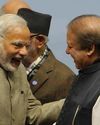The story of Israel’s agricultural sector is near-miraculous. India can—and should—tweak that model to suit our local conditions.

SHIMON PERES, WHO served both as Prime Minister and President of Israel, told the authors of Startup Nation in an interview that “Agriculture is 95 per cent science, five percent hard work.” If they had asked an Indian politician, he would’ve probably said the exact opposite. Barring the one-time quantum leap after the agriculture revolution, India’s farm productivity has largely stagnated. Farmers keep doing the same things, expecting different results. The sector still banks heavily on monsoon. A nationwide web of canals irrigating the country’s fields remains a distant dream. Major parts of the country either face drought or flood every year thanks to non-existent water management. Technology on the farms is a rare sight. Agripreneurs are unheard of in the countryside.
Comparing India with Israel is fraught with pitfalls given the astronomical differences in the size of arable land, total production, diversity and population of the two countries. Thus it is advisable only to compare some broad trends.
Israel’s agricultural production multiplied 16-fold since independence compared to India’s five. Even if we take into account the base effect, Israel’s performance is impressive. Israel has doubled the land under cultivation while India has shown only marginal improvement. Israel’s agriculture basket is a healthy mix of field crops, floriculture, horticulture, vegetables, fisheries etc. India’s on the other hand is heavily skewed towards cereals, mainly wheat and rice. The Jewish nation employs less percentage of its workforce in agriculture but contributes more to the nation’s GDP in stark contrast to India.
This story is from the June 2017 edition of Swarajya Mag.
Start your 7-day Magzter GOLD free trial to access thousands of curated premium stories, and 9,000+ magazines and newspapers.
Already a subscriber ? Sign In
This story is from the June 2017 edition of Swarajya Mag.
Start your 7-day Magzter GOLD free trial to access thousands of curated premium stories, and 9,000+ magazines and newspapers.
Already a subscriber? Sign In

Refuging Progess
There is a well-orchestrated global conspiracy to deny scientific and technological developments from the West to Third World countries.

The Monk Of Science
Vivekananda believed that Religion should be subjected to scientific methods of investigation. The third and concluding part of our series on the Swami and his views on science.
The Next Step
Indian technical manpower can be trained for high-value-added emerging services in the era of mass commoditisation of hardware.
The Threat Of Autarchy
The force of globalisation is an irreversible reality, and it is countries like India and China that will nurture it going forward.

Neanderthals: The Womb Of Caves
Recent discoveries indicate that Neanderthals may have had a rich inner life, including symbolic thought. Indeed, they may have been the progenitors of human religions.

Getting India's World Right
Incremental concessions will get India nowhere with Pakistan and China. What we need is a classically conservative foreign policy, based on realism.

The Hesitant Orbit
In order to march boldly ahead into the deep space, New Delhi must work towards building a station, boost its techno-economic planning and use the Indian Space Research Organisation smartly.

Nudges And Narratives
The debate surrounding Sanjay Leela Bhansali’s Padmavati brings India a complex network of portraits within a cultural world-system.

The Spell Of Specialisation
THE INDIAN ADMINISTRATIVE SERVICE NEEDS AN URGENT REJIG. THE KEY TO SPEED AND EFFICIENCY LIES IN PUTTING AN END TO A GENERALIST APPROACH AND IN GOING FOR A NEW SERVICE.
The Great Gamble
With demonetisation, the prime minister has taken a huge risk— both economic and political. He must succeed, because this move could transform both our economy and our society.